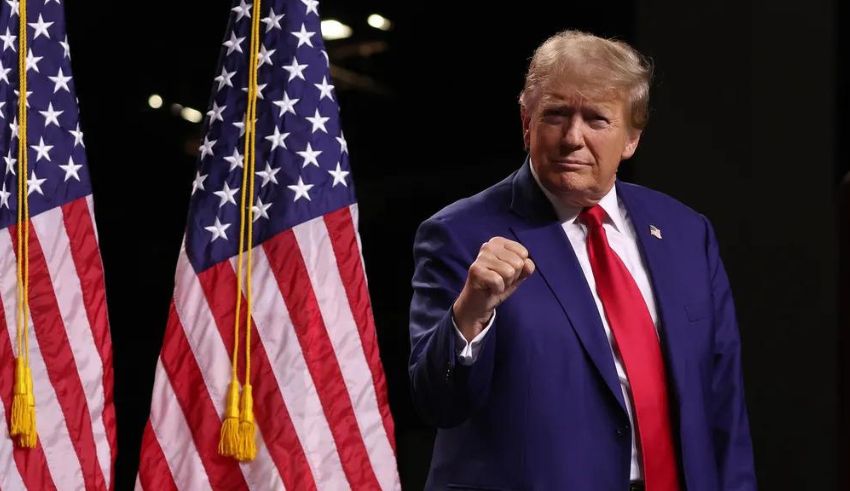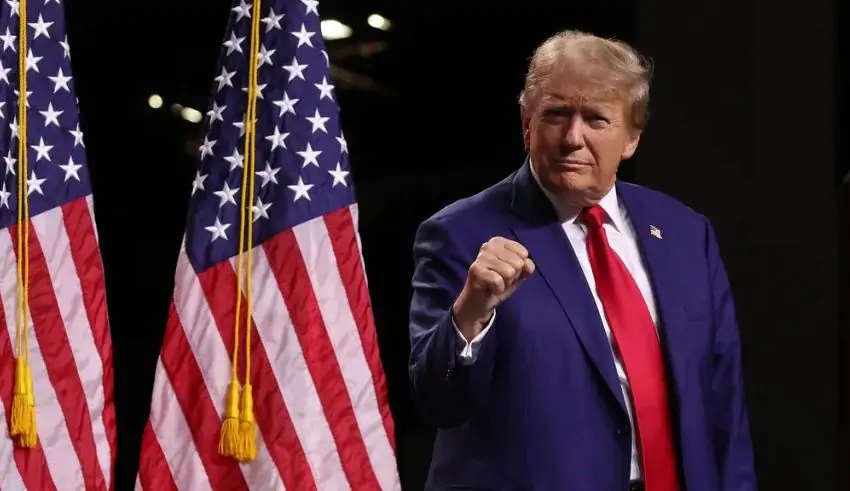

(C) Axios
The case was about whether states can bar former President Donald Trump from their ballots based on Section 3 of the Constitution’s 14th Amendment, which prohibits those who previously held government positions but later “engaged in insurrection” from running for various offices.
The case originated from Colorado, where the state’s Supreme Court ruled in December 2023 that Trump was ineligible to appear on the state’s Republican primary ballot on March 5, 2024, because he had incited the Jan. 6, 2021, attack on the Capitol. The court relied on a report by the House Select Committee on the January 6th Attack, which found that Trump had “orchestrated and encouraged” the violence.
Trump appealed the decision to the U.S. Supreme Court, arguing that the Colorado court had violated his constitutional rights and that only Congress, not states, can enforce Section 3 against federal officeholders and candidates. He also claimed that he had not engaged in insurrection, and that the House report was biased and unreliable.
The U.S. Supreme Court ruled in favor of Trump on March 4, 2024, in a unanimous decision with no dissents. The court reversed the Colorado court’s decision and ordered that Trump’s name be restored on the ballot.
The court agreed with Trump that states have no authority to enforce Section 3 against federal officeholders and candidates, and that only Congress can do so. The court said that the Constitution makes Congress, rather than the states, responsible for enforcing Section 3, and that Congress has not yet passed any legislation to implement it.
The court did not address the question of whether Trump had engaged in insurrection, or the validity of the House report. The court said that those issues were irrelevant to the case, and that it was not its role to decide them.
The ruling was a major victory for Trump, who had faced similar challenges in other states, such as Maine and Illinois, where he had also been removed from the ballot. The ruling effectively ended the legal fight over his eligibility, and ensured that he could run for president again in 2024.
The ruling was also a setback for his opponents, who had hoped to use Section 3 as a tool to prevent him from returning to power. They had argued that Trump had violated his oath of office and betrayed his country, and that he posed a threat to democracy and national security.
The ruling also raised questions and concerns about the interpretation and enforcement of Section 3, which had been rarely used since the Civil War. Some legal experts and commentators wondered whether the ruling had rendered Section 3 meaningless, or whether Congress would take action to clarify and apply it in the future.
K-Dramas have become a household name around the world in the past two or more decades-from Asia to the Americas,…
China is stepping up its game in Indonesia’s electric vehicle (EV) battery industry after a major exit by South Korea’s…
The jersey worn by Kobe Bryant during his NBA debut has sold for an impressive $7 million at auction which…
Before the national election that will take place on May 3, the government of Singapore ordered Meta, Facebook’s parent company…
The Vivo V50 Lite 5G enters the Malaysian market as it brings an impressive battery capacity along with an unexpected…
In an auspicious start to 2025, Hyundai Motor posted a 2% gain in its operating profit for the first quarter,…
This website uses cookies.
Read More